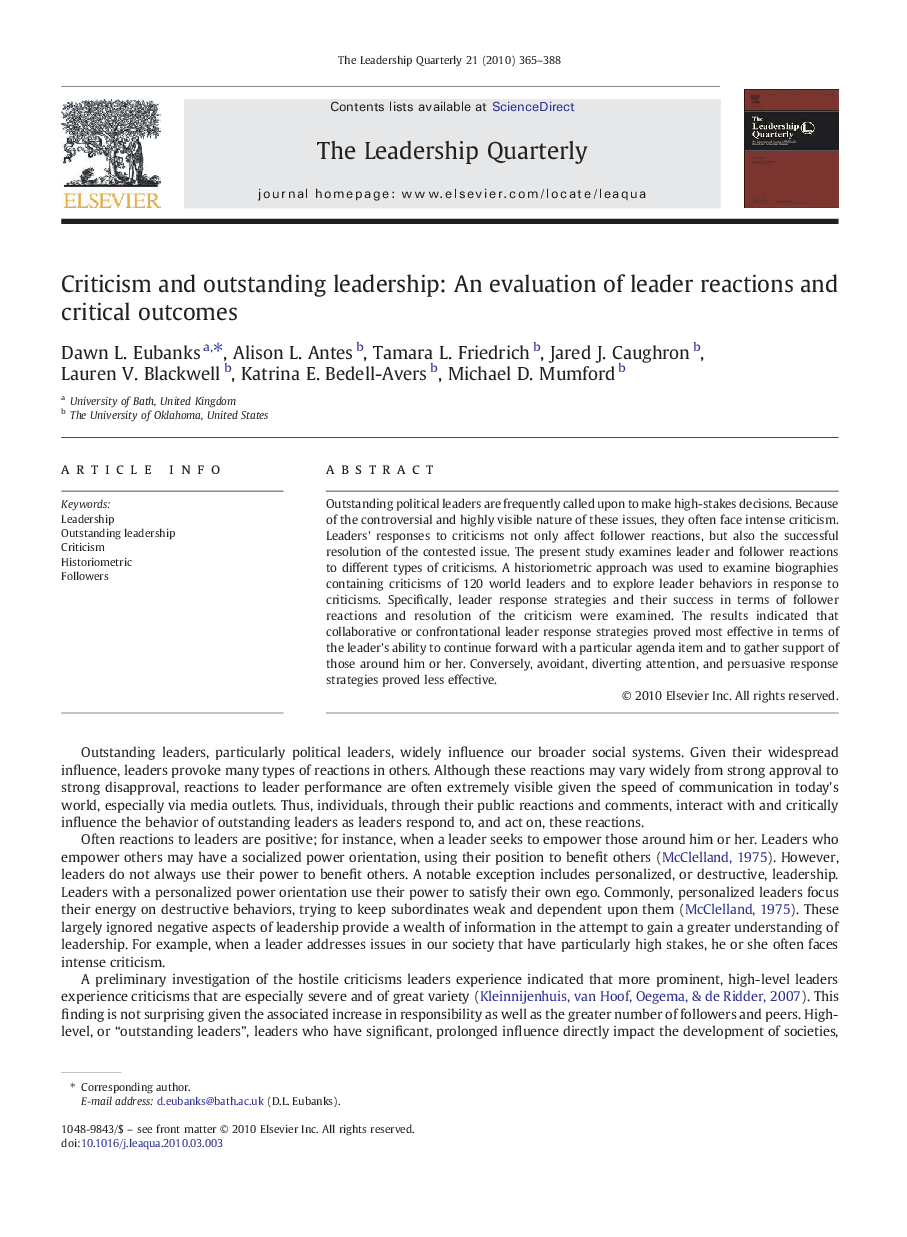| Article ID | Journal | Published Year | Pages | File Type |
|---|---|---|---|---|
| 887927 | The Leadership Quarterly | 2010 | 24 Pages |
Outstanding political leaders are frequently called upon to make high-stakes decisions. Because of the controversial and highly visible nature of these issues, they often face intense criticism. Leaders' responses to criticisms not only affect follower reactions, but also the successful resolution of the contested issue. The present study examines leader and follower reactions to different types of criticisms. A historiometric approach was used to examine biographies containing criticisms of 120 world leaders and to explore leader behaviors in response to criticisms. Specifically, leader response strategies and their success in terms of follower reactions and resolution of the criticism were examined. The results indicated that collaborative or confrontational leader response strategies proved most effective in terms of the leader's ability to continue forward with a particular agenda item and to gather support of those around him or her. Conversely, avoidant, diverting attention, and persuasive response strategies proved less effective.
